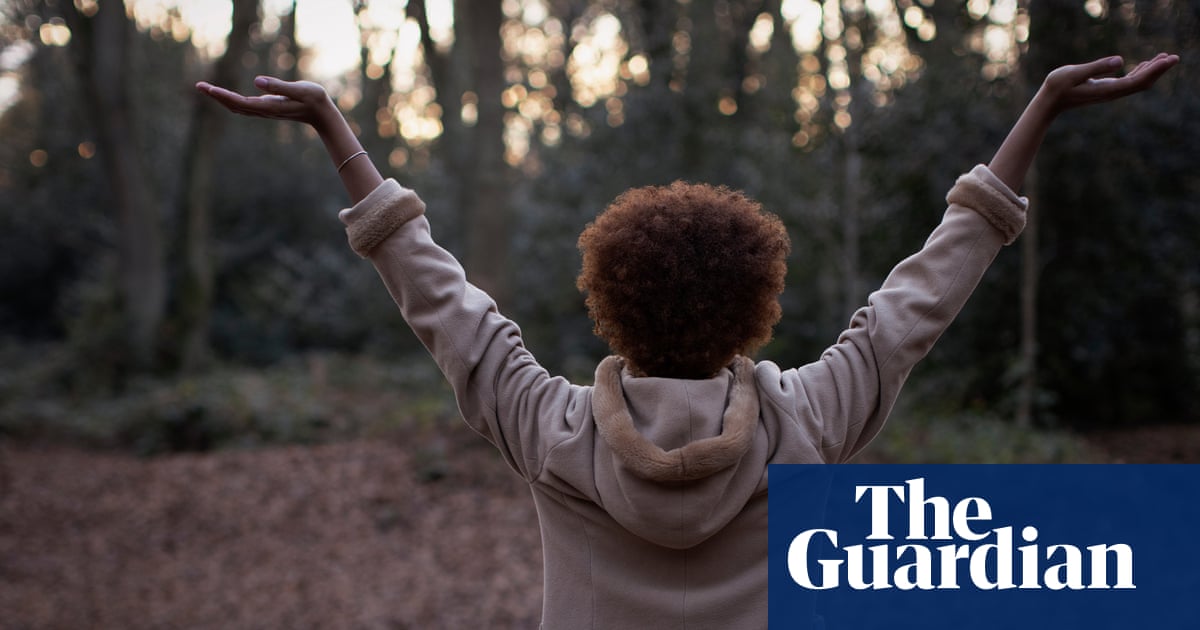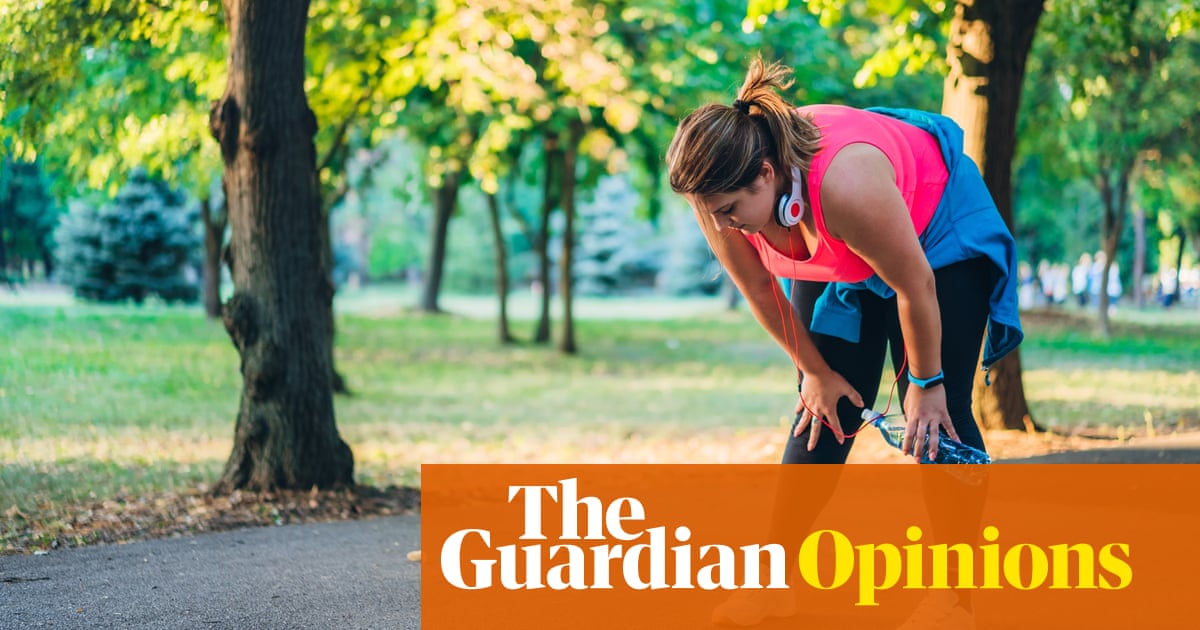
Ihad reached the ripe old age of 42 without ever having been on a retreat. But my partner and children were going to remain at home while I, freed from my frantic routine of ferrying the kids around and thinking up healthy meals, was to spend four days trying to relax.
Yet, days before departure, I find myself worrying about the backlog of “to dos” I’ll have waiting for me on my return. Rather than ease into the much-needed rest, I start telling myself I can’t afford so much time away. To quell the rising panic, I text Abi Osho, holistic lifestyle coach and creator of Soul Melanin Reconnect Freedom Sista Retreats for black women, warning her that I might not last the full long weekend.
Osho sends an information pack. We will have extensive grounds and a swimming pool at our disposal. That sounds nice, I think. Sounds like my weekend will be a type of spa experience. On my taxi ride through the Essex countryside and up a quiet country lane to a substantial coach house in Little Baddow, east of Chelmsford, I’m looking forward to kicking back in saunas, hot tubs and steam rooms, though I’m aware that meals will be fully vegan and there’ll be no alcohol or caffeine. I’ve brought my laptop – spa weekends involve a lot of sitting around, don’t they?
There’s a sizeable stone buddha in the front garden, but instead of using it as somewhere to calm my mind and turn my attention inwards, I think about how I’ll catch up on my backlog at some point over the weekend.
When I meet Osho, though, I begin to suspect this won’t be the pampering weekend that the word “retreat” had conjured up. This is confirmed when I join the 12 other – all-female – guests. We sit in a circle in a large open-plan kitchen-diner and Osho asks: “Why are you here?”
The women’s answers are varied. Nearly half are dealing with the void left in the wake of a death, or grappling with their mortality after a serious illness, but their answers all share a theme: they are here because they need a safe space. News of the Queen’s death that very same day had added to the atmosphere of reflection.
In Osho’s space, we don’t feel any need to temper our conversations about Chris Kaba, the man shot dead by police in London in September, or about the monarchy and its legacies of empire. We are among kin and already it feels as though something substantial is taking root. We are not making adjustments to our way of talking or manner of being in order to slip through everyday interactions.
Wellbeing tourism was estimated to be worth £467bn worldwide in 2017. Yet, as Carolyn Kylstra, former editor-in-chief of Self, Condé Nast’s wellness magazine, put it, “Wellness has a race problem.” It is a booming industry that, she notes, caters “almost exclusively” for wealthy white people.
But now black practitioners are charting a new way for under-represented communities. It was a desire to support black women – who face stark health inequalities in the UK and worldwide – that led Osho to create her retreats.
“I just thought that we really need this space,” Osho tells me. “The journey I wanted to take women on was one of really knowing their self-worth.” She began offering monthly one-day retreats during lockdown in locations such as Broadstairs in Kent, but demand for longer breaks led Osho to introduce weekend retreats.
It is Asantewaa’s first time at one of Osho’s retreats. A complex-needs worker and grandmother from north London, Asantewaa tells me she was drawn to attend because it is a space solely for black women.
“As black women there’s things we need to do together as opposed to open it out to the masses,” she says. “When I’m with my sisters, I know they can understand my experiences. Some things don’t have to be spoken.”
Nearly all the women attending have grown-up children. A fair few also have grandchildren and most continue to juggle work with caring responsibilities. Outwardly, each woman is the image of perseverance, fortitude and resilience: the archetypal strong black woman. Yet within Osho’s sister circle, they lay bare their vulnerabilities.
After dinner that first night, we gather underneath the stars, all barefoot so that we can “ground”. Grounding, a daily element of Osho’s retreats, is the practice of connecting with the charge-carrying ions able to conduct electrical current within soil. We leave feeling revitalised, yet ready for our beds.
Activities over the next few days include a sound bath, a crystals and essential oils workshop, and a self-reflection session using an oracle deck. Free from the rules of tarot cards, oracle decks contain images and prompts that lead readers towards self-analysis. Osho explicitly links this to African religious practices that believe the human spirit remains even after death and, crucially, that our ancestors act as mediators in everyday life.
Days begin with a 7am stretching routine, then breakfast and a walk. Mid-morning on day two, we head to a nearby wood. Osho says she wants to encourage women to “recognise that these beautiful spaces in nature are also open to us as a people. There can be an invisible awkwardness in woodland spaces, almost like we don’t belong – particularly if you’ve always lived in an urban environment.”
Each woman is instructed to find something from the forest floor that signifies her. We tramp through the damp undergrowth and pick fallen leaves, twigs and moss and tell how each item speaks to who we are. Within the circle, women find words to share their grief; one discloses experiences of abuse. As one breaks down in tears, the circle gathers to hold her in her pain. We leave the forest with a sense that in just 12 hours, we have bonded.
Sonia Hines, a “young pensioner” from south London is on her fourth retreat with Osho. After the first, she tells me, she realised she hadn’t been to the beach “for the longest time”. Earlier this year, Hines underwent treatment for breast cancer. “I had this realisation that this is all around me,” she gestures to the open fields. “But I am not going into it. I felt I needed to make memories because I don’t know whether next time I go to the doctor there will be another diagnosis.”
For me, Osho’s retreat offers a chance to peel myself away from the frenzy of day-to-day existence. I found space to embrace both the moment and the trust of the women who shared it with me. The spirit of care and openness we quickly establish leaves me with a sense of vitality that comes through feeling connected.
The last night of our retreat coincides with a full moon. I have finally abandoned my laptop and the compulsion to be productive. We begin our night by dancing the Electric Slide, and afterwards we build a fire under a 200-year-old oak tree.
Osho has instructed each of us to bring two pieces of paper. On one we write what “no longer serves us”, on the other what we are “inviting more of into our lives”: health, acceptance, sisterhood. It is a beautiful closing ceremony and ends with a midnight dip in the cold outdoor pool. After our swim, we return to our fire and sing along to R&B classics. It feels like a homecoming.












